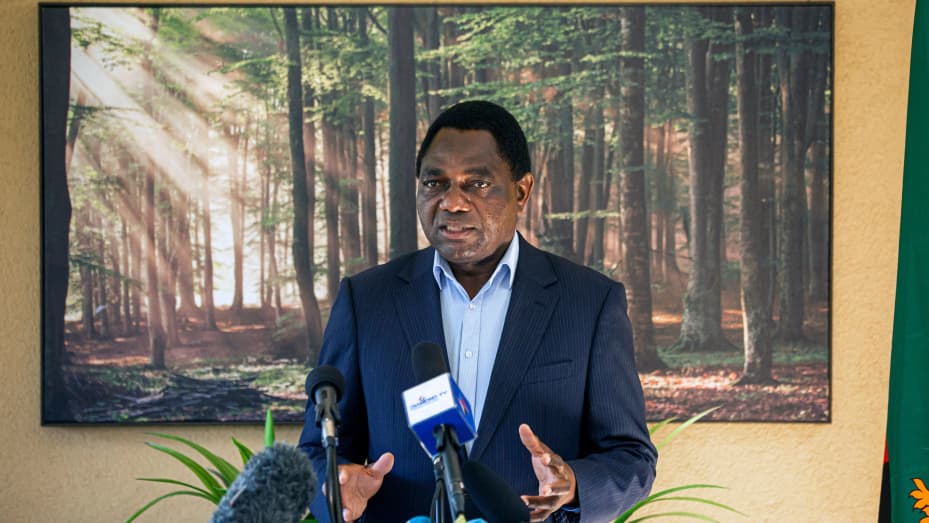ON 4 September, Zambia’s President Hakainde Hichilema denounced alleged coup plotters who he claimed were planning to undermine the country’s democratic rule and stability by illegally seizing power.
Coming after a string of military coups in West African countries, including Guinea, Chad, Burkina Faso, Mali, Niger and Gabon, his comments have attracted widespread attention across the continent and beyond.
The warning by Hichilema that he would go for those considering a coup was first issued during a public rally in Kanyama, a densely populated slum in the capital.
Any assumption that it was an off-the-cuff statement made in the heat of the moment was eliminated when the president reiterated the remarks in a carefully written Facebook post later that evening.
“To colleagues that think we are timid by being kind and that they can break the laws and entertain thoughts of illegal takeover of government including undemocratic coup d’état, our only word is that ‘We are coming for you, and we will not allow you to make Zambians start running around as is the case in some places’,” he wrote.
Hichilema’s talk about a coup plot caught many people by surprise. Zambia has no history of military rule or interference in political processes, and the last failed coup attempt occurred 26 years ago.
Furthermore, the country’s political elite has a well-established commitment to democratic politics, informed in part by a track record of elections that result in peaceful transfers of power. Given this background, it is easy to understand why some individuals and organisations have since condemned Hichilema’s remarks as irresponsible.
This condemnation is necessary, but not sufficient. Zambians also need to understand why Hichilema is making such comments. Contrary to what some of his political opponents have argued, the president’s threats were neither random nor a result of careless talk.
They are deliberate and demonstrate how Hichilema is slowly becoming adept at undermining democratic institutions in a committed, strategic, and well-defined manner. If Zambians wish to avert the increasing restrictions on political and civil rights, they will do well not to underestimate the lengths to which he is prepared to go in his bid for re-election. Outside Hichilema’s head, there is no coup plot in Zambia.
The talk about people scheming to overthrow him and his vow to punish those responsible should be seen as part of his wider political strategy to undermine opposition forces and stay in power beyond 2026. Hichilema’s coup remarks were directed at different audiences for different objectives. The first was the military whom he was warning not to depose him from power.
Here, appreciating the objective of his comments requires an understanding of the wider context to which the president was responding: the recent political developments in West Africa, where several incumbent presidents labelled by their opponents as ‘puppets’ of a major Western power, France, have been deposed from office by the military.
On the domestic front, Hichilema has faced growing criticism that he is a “puppet” of Western powers led by the US, UK and the EU.
His administration’s policies in the areas of mining, energy, security and foreign affairs have pushed the perception that he is actively favouring Western interests — an outright reversal of the position of his predecessor Edgar Lungu, who pivoted towards China and Russia. Behind the talk of a coup is rising political paranoia in Hichilema’s head emanating from his government’s failure to reduce the worsening cost of living, two years after his election.
The removal of most subsidies — at the instigation of the prescriptions of the International Monetary Fund — and falling value of the unstable kwacha have not only exerted pressure on input costs since Zambia is an import-driven country but also pushed the price of fuel and corn meal, the country’s staple food, by over 100 percent since August 2021. By Sishuwa Sishuwa
●Sishuwa Sishuwa is a Zambian writer, historian, and Senior Lecturer at Stellenbosch University. – M&G








